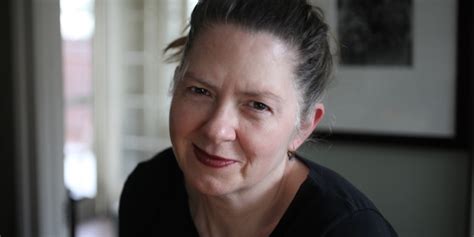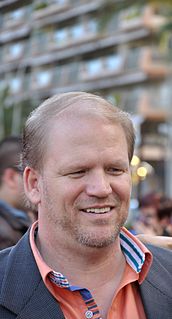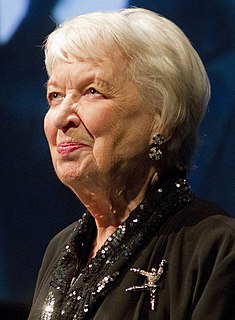A Quote by Manohla Dargis
American commercial cinema has long been dominated by men, but I don’t think there has ever been another time when women have been as underrepresented on screen as they are now. The biggest problem isn’t genuinely independent cinema, where lower budgets mean more opportunities for women in front of and behind the camera. The problem is the six major studios that dominate the box office, the entertainment chatter and the popular imagination. Their refusal to hire more female directors is immoral, maybe illegal, and has helped create and sustain a representational ghetto for women.
Quote Topics
American
Another
Another Time
Been
Behind
Biggest
Biggest Problem
Box
Box Office
Budgets
Camera
Chatter
Cinema
Commercial
Create
Directors
Dominate
Dominated
Entertainment
Ever
Female
Front
Genuinely
Ghetto
Helped
Hire
Illegal
Imagination
Immoral
Independent
Long
Lower
Major
Maybe
Mean
Men
More
Now
Office
Opportunities
Popular
Problem
Refusal
Screen
Six
Studios
Sustain
Think
Time
Women
Related Quotes
We need more female directors, we also need men to step up and identify with female characters and stories about women. We don't want to create a ghetto where women have to do movies about women. To assume stories about women need to be told by a woman isn't necessarily true, just as stories about men don't need a male director.
All year there have been these cover stories that the women's movement is dead and about the death of feminism and the post-feminist generation of young women who don't identify with feminism - and then we have the biggest march ever of women in Washington. More people than had ever marched for anything - not only more women, but more people.
Macho in a different sense, the kind of things that we think makes us a man. It doesn't really exist right now. I really don't want it to seem that I think it's a problem that women are in development, I don't think it's as problem at all, I just think it's an interesting time that we're in. And maybe long overdue - maybe television for a long time was made for men and it's long overdue.
Let's acknowledge that men reach for opportunities more quickly and more easily than women. So often as managers, we give the job to whoever starts solving the problem, to whoever jumps in. Since we know men will jump in faster than women in so many circumstances, we have to slow down and encourage more women to sit at more tables.
Women's tennis has been around for a very long time - we're talking about the 1800s. But women's soccer hasn't had such a long history, so now they're right at the beginning of really trying to make things equal. We need to continue not only to advocate for women but to have men advocating for women.
There still aren't enough[ roles for women of color]. And I'd say that's the case, not only for African-American women, but for all women in the Hollywood game. It's just slim pickings, and a very challenging time for us. I think that's why more of us need to work our way behind the camera in order to create roles that really illuminate who women are. We still have room for growth in that area, without a doubt.
Men have been domesticated, and I don't think it's necessarily good for them. They have been emasculated with the pill and women becoming more independent. I do think it's made a big difference for women to have more charge of their own bodies. It's made them feel more on equal terms and made the men feel less secure, less the master of everything.
I think men are more adventurous in that they're more likely to take chances. Women play it safe. But now, maybe more of the women that see how it's working for the guys think, 'I can do that, too'. Maybe they'll pick male players, not necessarily female players; it's just whatever that match is that works for that player.
Many women, particularly young women, have claimed the right to use the most explicit sex terms, including extremely vulgar ones, in public as well as private. But it is men, far more than women, who have been liberated by this change. For now that women use these terms, men no longer need to watch their own language in the presence of women. But is this a gain for women?



































